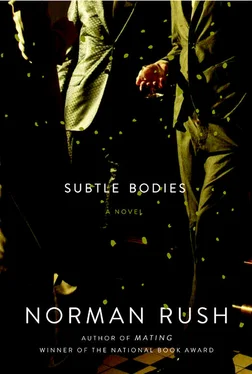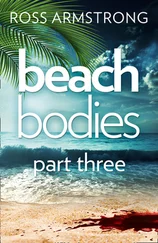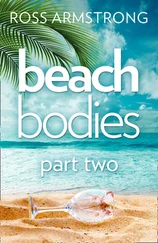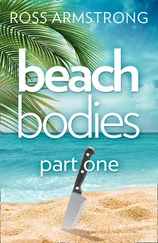“ Who died?”
“ Ma, I never met him . He turned out to be rich. And boy was he a whiner. I live in a dying forest, he wrote to Ned. I read that over Ned’s shoulder and I felt like saying, Well, move then, you can afford it.”
Everything was getting to her. She was looking at a block of identical posters on the bus station wall. Each of them had been neatly defaced with the word faggot inscribed in italic marker pen on the forehead of the lead singer of a group called Blue Papa.
Her mother loved Ned. “I love Ned,” Ma said. Who doesn’t, Nina wanted to say. Ned and her mother had been on the same page in the matter of adoption. She’d had to fight to convince Ned they should have their own child. Christ, what a battle. Finally she had won. What she wanted was Ned’s essence, what he was, because he was a lovely man. And face it, she wanted her own essence to go on, too. She was okay, and went well with Ned, as the harsh angel he needed. He should really be a Christian. He was. Be anything, but hold me in your arms, she thought. And then she remembered how much he had laughed last week when she’d said Let’s go lie down and call each other honey. She wished sometimes that Christianity was real and that there was a heaven so he could go to heaven, and she would be willing to go to hell for her transgressions. There would be a God and Ned would believe and he would be safe. But he couldn’t be a Christian because science was true. And his good friends were all secular. She wasn’t religious herself, but for some reason she had pushed Ned to go with her to a couple of Quaker meetings. Society of Friends. She was attracted to what they called themselves. But it hadn’t worked. It had to do with the silence at the end of the proceedings where people are supposed to speak as the spirit moved them. The spirit had moved Ned to argue with some of the things the spirit had moved other people to say. And that hadn’t been appreciated.
“Don’t be hard on Ned,” Ma said.
“Okay I won’t. I’ll take it out on his friends.”
“Nina, you’re going to get pregnant. I know it.”
“You’re seeing the future again?”
Her mother did think she could see the future, and not only the economic future, with socialism just around the corner. She had intuited that Nina was going to grow up to be a writer because as a tiny child she had liked the smell of freshly sharpened pencils. I’m still waiting to become a writer, she thought. She wouldn’t mind that.
“Don’t worry about the future, Neen,” Ma said.
“Maybe I should see a shrink,” Nina said. This was teasing. Her mother was dead set against psychotherapy. In adolescence when Nina had once proposed that she might need to talk to a psychiatrist, Ma had said You don’t need a psychiatrist, it’s all in your head.
Nina said, “Ma I love you.” She thought, His enemy friends can go to hell. Ned was under an illusion. He thought friendships between men were superior. Because — and he had said this! — men didn’t want anything back from their true friends, it was all affinity. They didn’t, for example, want a baby from them, want them to be a provider for babies, or need them to be on-call confidants. Men are simple, she thought.
“Neen, I love you all the time,” Ma said.
“I know you do. I’ll call you. These people don’t think Ned’s important, Ma. They know nothing. They don’t know anything about the Fair Trade movement which he’s practically a god in. He’s helping poor people, the co-operatives …”
“Oh honey I know and I lost the catalog you sent me, the coffee catalog.”
“I’ll send you another one.”
“Oh and Nina, I know you have to go, but don’t wear buckskin,” she said with real anxiety. Ma was referring to a buckskin jacket, fringed, that Nina loved.
This never dies, Nina thought, because with the long black hair that you want me to cut and because I’m so fierce and all, and because looking Sicilian makes me look like a Cherokee in the buckskin. “I don’t even own that jacket anymore, Ma,” she said, which wasn’t true.
“Okay then, that’s good. And go easy on the cursing. Remember if you’re working with a lot of men you get used to cursing. If these people where you’re going live in a castle they might not like it. You told me that his friend lived in a castle. I remember that.”
“My bus is here, Ma. Be good.”
Closer up, the tower looked a little ragged in outline. It was built out of shale flags. There were big windows in every story. It would be hell to heat. It was a major thing, this dark edifice, not a toy, not a tree house. You could put a few families in it.
A running figure, a young man running, flashed twice across Ned’s field of vision. The runner was circling the tower. Ned waved vigorously, but the sturdy figure kept running and then failed to reappear. He had been barechested, strangely, given the weather. He had been wearing torn jeans, and on his head, a red bandana, like a pirate or rap singer. He looked tall for fourteen or fifteen, but he had to be Hume, Douglas’s boy, who of course would be upset. Probably that was why he was running. I would want my son to be upset if I died, not to mention my daughter, he thought. He was going to be an old father, the kind kids wouldn’t prefer, which couldn’t be helped. There had been trouble with Hume. Elliot would know, Ned thought. I pray to god it isn’t something ugly and predictive of hell. People who had children assuming they were creating future friends were rolling the dice.
The gravel creaked under Ned’s boots. The tower’s grounds were, Ned now saw, not entirely treeless. A quince tree stood at one corner of Douglas’s famous physic garden, which lay behind a gated wire fence. Douglas had alluded to his quince tree more than once. This garden would be where he had raised herbs and other exotic botanicals, presumably for fun.
Someone darkly dressed was squatting next to the quince tree. This figure’s back was toward the tower path, toward Ned. It was his friend Elliot crouching there, smoking. Ned called out and Elliot stood up and, turning, shot his cigarette butt away — furtively, Ned thought. Ned began to trot toward his friend. He was full of feeling. Elliot was a decent man. Ned’s eyes felt charged, not ready to let any tears out, but close. From this vantage, Ned could see other buildings set lower on the descending far side of the hill — a vast rustic ranch-style house with smoke rising from a chimney … a wide garage, sheds, other structures. Elliot was waving. He shouted, “Ahoy, polloi,” an ancient nothing from their student days.
“Ahoy yourself!” Ned said. It was the same Elliot, still thin, professionally tan, now. His dark hair flowed back from not quite the center of his head. He pressed his hair down. He was working up a smile for Ned. It always seemed to take a little effort for Elliot to erect a smile. The group had accepted the responsibility to keep Elliot, with his default permanently resigned expression, cheered up. His long, serious actorly face was unlined. He undoubtedly had the same effect on groups that he’d had in olden times: when he arrived, people would be concerned to place him, figure out who he was, exactly. His height was part of it, of course. Elliot’s smile came, and his teeth, Ned noted, were a la mode, that is to say unnaturally white. Nina had perfect godgiven teeth, like her mother. Nina was goodlooking. But compliments made her nervous. The whole subject made her nervous. Maybe because your appearance was so luck of the draw. She turned away questions touching on her looks. Someone had asked her what color she would say her green-brown eyes were, and she had said they were olive drab. Elliot was rich. The two men embraced.
Читать дальше











